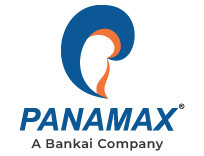Over the years, technology has been a game-changer in solving various issues that were previously thought impossible. One such evolution of technology is mobile wallets, which have the potential to effectively address and eliminate the global problem of financial exclusion among the unbanked population.
Mobile payment solutions are perfect for individuals seeking bank-like services, even without a traditional bank account. Digital transactions via mobile wallets can help eliminate the unbanked population. For example, industry giants such as American Express have introduced mobile wallet services like Serve and Bluebird, while startups like Due have also entered the market, further intensifying the competition.
The introduction of mobile wallets has brought transformative changes in the banking and financial services sector, from cashless societies to the rise of innovative fintech solutions and the increased focus on customer-centric banking experiences. Individuals can store their payment information, make purchases, transfer funds, and perform various financial transactions with just a few taps on their screens. In this blog, you can explore how mobile wallets have impacted the banking industry and financial services.
Impact of Mobile Wallet on Banking and Financial Services
Mobile wallets have significantly impacted banking and financial services, revolutionizing how people manage their money, make transactions and conduct business. Digital payment solutions are accessible through smartphones and other mobile devices, transforming the traditional banking landscape by offering convenience, accessibility, and security to more competition and changing client expectations. Some key impacts of mobile wallets:
Increases Convenience and Accessibility
Mobile wallets allow users to store their payment information digitally on their smartphones, eliminating the need to carry physical cash or cards. Convenience has made financial transactions easier and faster, enabling people to make payments anytime, anywhere, with just a few taps on their phones.
Drives Financial Inclusion
Digital banking payment Solutions have played a crucial role in promoting financial inclusion, especially in regions with limited access to traditional banking services. Providing a simple and affordable way to send, receive, and store money has enabled millions of unbanked individuals to use it.
Reduced Transaction Costs
Digital payment has significantly reduced transaction costs for consumers and businesses. Compared to traditional payment methods, such as cash or credit cards, mobile wallet transactions often involve lower or no fees. The cost reduction has made it more affordable for individuals and businesses to engage in financial transactions, especially for small-value transactions.
Enhanced Security
Mobile wallets employ advanced security measures to protect users' financial information. These include encryption, tokenization, biometric authentication, and two-factor authentication. By leveraging these security features, mobile wallets have made financial transactions more secure and instilled confidence in users to adopt digital payment methods.
Value-added Services
Payment Solutions have expanded beyond essential payment functions and offer various value-added services. These services may include bill payments, fund transfers, peer-to-peer payments, loyalty programs, integration with e-commerce platforms, and access to financial products such as loans and insurance. Mobile wallets have become a comprehensive financial tool beyond traditional banking services.
Data-driven Insights
It generates vast amounts of transaction data, which can be leveraged to gain valuable insights into consumer behavior, spending patterns, and preferences. Financial institutions can use this data to personalize their services, offer targeted promotions, and develop innovative products based on a deeper understanding of customer needs.
Disruption of Traditional Banking
Mobile wallets and other fintech innovations have disrupted the traditional banking industry. They have introduced new players into the financial services ecosystem, such as mobile payment providers and digital banks, challenging traditional banks to adapt and innovate to remain competitive.
Mobile wallets had a transformative impact on banking and financial services, driving digital transformation, promoting financial inclusion, and reshaping how people interact with money. Their convenience, accessibility, and value-added services have made them a preferred choice for consumers, opening new opportunities for businesses and financial institutions.
Why Choose Digital Wallets
Mobile wallets have introduced a new era of a cashless, seamless, efficient financial ecosystem. It has paved the way for innovative fintech solutions, increasing competition and driving advancements in the banking industry. With quick transactions, enhanced security measures, and integration with loyalty programs, mobile wallets have empowered individuals to manage their finances more efficiently and enjoy personalized banking experiences. There are several reasons to choose digital wallets. Here are some of the key advantages:
Convenience
Digital wallets allow you to store your payment information digitally, eliminating the need to carry physical cash or multiple credit or debit cards. With just a few taps on your smartphone, you can make payments anytime, anywhere, making transactions quick and hassle-free.
Security
It offers enhanced security compared to traditional payment methods. They use encryption and tokenization techniques to protect your sensitive information, such as credit card details, from being exposed during transactions. Additionally, many digital wallets provide features like fingerprint or facial recognition for authentication, adding an extra layer of security.
Speed
It enables fast and instant payments. You can tap your device or scan a QR code to complete a transaction within seconds. It is beneficial when making quick payments, such as in stores, restaurants, or public transportation.
Loyalty and Rewards
Many digital wallets integrate loyalty programs and reward schemes. A digital wallet lets you quickly accumulate loyalty points or earn cashback on your purchases. These incentives can add value to your transactions and provide additional savings or benefits.
Organization and Digital Receipts
Payment solutions enable you to keep track of your transaction history digitally. You can view your payment records, access digital receipts, and easily manage your expenses. It can be beneficial for budgeting and financial management purposes.
Integration and Versatility
Digital wallets are often compatible with various platforms, online merchants, and payment gateways. They can be used for in-store purchases, online shopping, peer-to-peer transfers, and utility bill payments. This versatility makes them a convenient and unified solution for managing different types of financial transactions.
Contactless Payments
support payment methods like Near Field Communication (NFC) or Quick Response (QR) codes. These technologies allow you to make payments without physically handing over your card or touching a payment terminal, promoting hygiene and reducing the risk of transmitting germs, especially during the COVID-19 pandemic.
It's important to note that while digital wallets offer many benefits, choosing a reputable and secure platform is crucial as following best practices for safeguarding your personal information and devices.
Emerging Markets and Financial Inclusion
Emerging markets and financial inclusion are closely intertwined, as expanding access to financial services is crucial for promoting economic growth, reducing poverty, and increase inclusive development. The relationship between emerging markets and financial inclusion include are Unbanked and Underbanked Population, Mobile Technology, Agent Banking, Digital Payments and Remittances, and Microfinance and Microcredit.
Promoting financial inclusion in emerging markets is a multifaceted challenge, but it presents significant opportunities for sustainable economic growth and poverty alleviation. By leveraging technology, innovative business models, and supportive policies, emerging markets can bridge the financial access gap and empower individuals and communities to participate fully in the formal financial system.
Future of Mobile Wallet
The future of mobile wallets is poised for continued growth and innovation as digital transactions become increasingly prevalent. Here are some potential trends and developments that may shape the future of mobile wallets:
Increased Adoption
As technology advances and awareness grows, more people are expected to adopt mobile wallets as their preferred method of payment. This adoption will be driven by factors such as convenience, security, and the growing acceptance of digital transactions.
Integration with Other Services
Mobile wallets are likely to become more integrated with other services, such as loyalty programs, rewards programs, and even transportation systems. This will make them even more convenient for users and could further drive adoption.
More Advanced Features
Mobile wallets are likely to become more sophisticated, with features such as biometric authentication, voice recognition, and even augmented reality. These features will enhance security and user experience, making mobile wallets even more appealing.
Increased Competition
As mobile wallets become more popular, we can expect to see increased competition among providers. This will lead to more innovation and better services for users.
Enhanced Security Features
With increased cybersecurity concerns, mobile wallets will continue to prioritize the implementation of advanced security features. This may involve biometric authentication, tokenization, and artificial intelligence-driven fraud detection systems to ensure secure transactions and protect user data.
Cross-Border Transactions
Mobile wallets are expected to facilitate seamless cross-border transactions, enabling users to send and receive money internationally with ease. This will be supported by partnerships and collaborations between mobile wallet providers, financial institutions, and payment networks.
The future of mobile wallets looks very bright, with continued growth and innovation expected in the coming years.
Conclusion
Mobile wallets can be a powerful tool in eliminating the unbanked population by providing a convenient, accessible, and affordable way for people to make digital transactions.



















